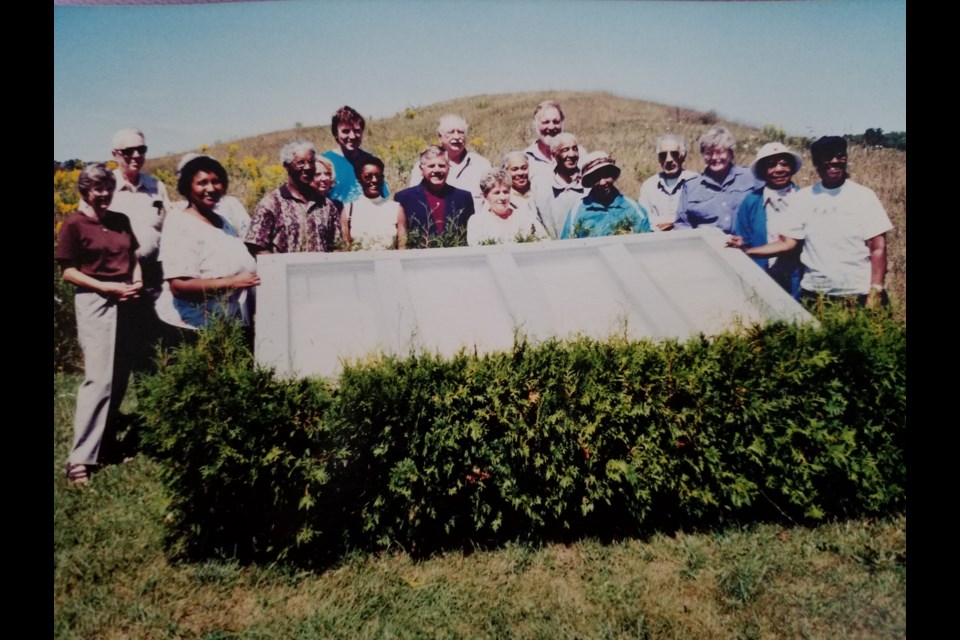CollingwoodToday has partnered with Sheffield Park Black History Museum for Black History Month. This is the final of four weekly columns featuring local and Canadian Black History thanks to research provided by Sheffield Park museum.
*****
Pieces of the area’s Black history had to be unearthed and rescued from a pile of rocks more than 30 years ago.
They were headstones discarded on the side of a farmers field that had once been a pioneer cemetery used by a nearby Black settlement.
The Priceville Cemetery dates back to the 1840s when a new settlement was established on Old Durham Road. The 1851 census shows nearly every 50-acre lot along the Durham Road was settled by a Black family whose parents were born in the USA. It’s probable many of their parents had been refugees escaping slavery in America.
Eventually, most of those living in the settlement moved away and in the 1930s a white farmer plowed over the cemetery to plant a potato field.
Several headstones were broken. In one case, a piece of a headstone was used as a home plate for a schoolyard baseball field.
In the 1980s, residents of the Old Durham Road area began an effort to restore Black History by confirming the settlement and the cemetery and speaking with historians such as the Sheffield family who founded the Sheffield Park Black History Museum.
In 1989, a group of citizens formed the Old Durham Road Black Pioneer Cemetery Committee, and the descendants of the farmer who had plowed over the cemetery donated a corner of the field to the committee and granted permission to dig through the rock pile in the middle of the field.
That’s when the committee found four headstones, broken and discarded with rocks from the field.
The names on the stones were confirmed as early Black settlers in the area. They were James Handy and his daughter Ellen, Christopher Simons, and James Washington.
James Handy’s descendants include Carolynn Wilson, a Collingwood resident.
The four headstones were encased and put up on-site for display. During a ceremony in 1990, the then Lieutenant Governor Lincoln Alexander dedicated the site and also unveiled a memorial granite boulder with an inscription honouring the early pioneers of African descent.
The cemetery committee later secured an Ontario Trillium Foundation grant and erected a concrete pavilion to safeguard the four historic gravestones.
The pavilion was designed to evoke memories of cemetery dead houses, roadside chapels and log cabins. It symbolizes safe passages and faces north to commemorate the paths to freedom taken by refugees.
The pavilion was dedicated by Lieutenant Governor Elizabeth Dowdeswell, Dr. Jean Augustine (the founder of Black History Month), Robert Leverty (of the Ontario Historical Society), and other local officials.
You can visit the site in Priceville today on Old Durham Road south of Highway 4 at the five-point intersection.
The township has taken over the site maintenance and a municipal bylaw protects the location and online structure and artifacts.
The cemetery committee still exists and promotes the site with public forums, tours, and decoration day services.



